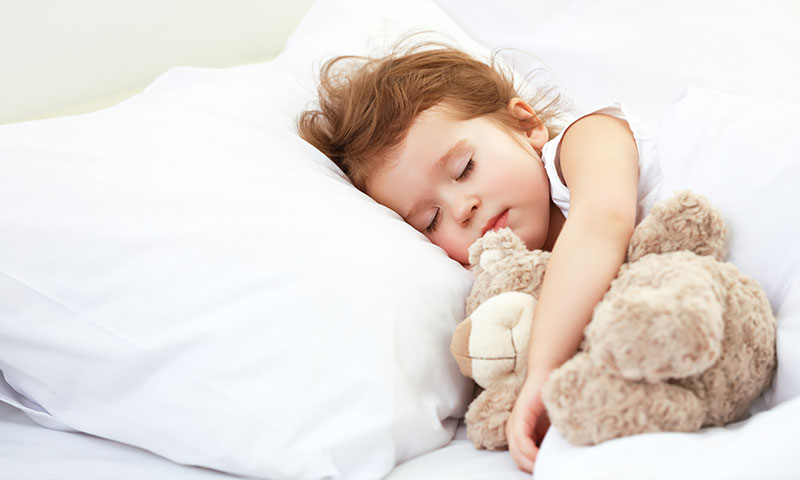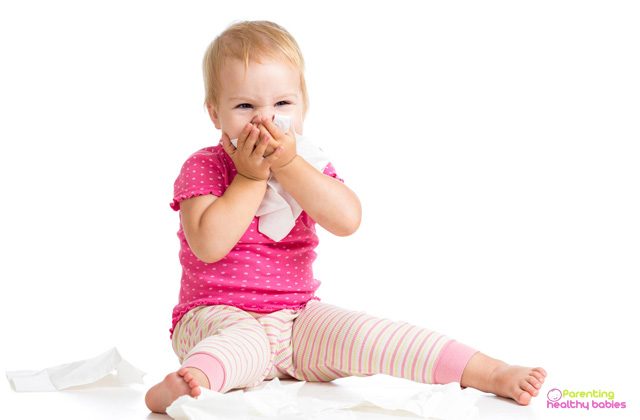There are many factors that contribute to sleepless nights for adults – stress, work, overthinking, etc… However, these issues aren’t solely associated with adulthood. Like adults, kids sometimes face problems falling asleep.
When this happens, it makes both the adults’ and kids’ life a lot harder. Since quality sleep is an essential part of health and proper functionality, these issues shouldn’t be overlooked.
Here are some tips to help your children sleep better:
Establish a consistent wake-up — sleep routine
Routines help human beings keep their lives structured, and so their daily tasks mindlessly since their bodies are used to doing them every day. Therefore, routines are recommended for everyone, especially for children of all ages.
Create a morning routine for your kids that makes them wake up excited. This could be done by letting them play sometime in the morning, helping you prepare breakfast, or an activity they’re excited about.
Depending on your child’s age and what their daily activities look like – school, practice, lessons, etc… set a wake-up time and stick to it even on weekends. It’s advisable that you don’t pick a time that’s too close to their school time so they have some time to prepare beforehand, and prevents the daily rush.
Creating a routine that’s slowed down and relaxing is both beneficial for the child and the parents. It helps with the stress of parents trying to catch up with the child’s daily routine and makes the child used to a non-rushed pace in life.
As for bedtime, establish a routine that’s light and helps them feel drowsy. After children are done with eating dinner, don’t let them engage in any intensive activities – make playtime light and relaxing so they don’t alert.
They are other relaxing things to do such as bathing, reading them a book or teaching them to read it themselves, skincare routine…. Anything that helps your child get more sleepy.
Reduce screentime
Nowadays, it’s nearly impossible for children to not include technology in their lives – iPad or tablet games, TV, and smartphones. Although these devices serve some benefits because it exposes children to challenges for them to solve.
There are also educational applications and platforms that help children enhance their knowledge and learning capabilities. However, technology serves as a double-edged sword. If utilized correctly and under control, is beneficial. If not, causes unfavorable consequences.
Screens emit what is called blue light. This blue light can mess up with people’s sleep schedule because it suppresses the hormone that is responsible for sleep – melatonin. When your child is less sleepy at night, it takes them longer to sleep than usual.
Therefore, it’s a good idea to make their bedroom a no-technology zone. This will allow them to fall asleep faster, and create a beneficial habit that they’ll adopt till they get old. Also, implement a no-screen rule around two hours prior to bedtime. Let them engage in other activities such as reading or drawing before bed.
Be careful with naps
Children love to nap at any time. Although it feels good to have some time for yourself in the middle of the day, children napping midday will certainly backfire. That’s because it makes them less tired at night, hence, fall asleep for a longer time.
But, if they must nap, opt for a maximum of 20-30 minutes in a peaceful place. If you’re on the go, there’s this napping solution for children that helps with “bobbing head syndrome” called NapUp that makes sleeping in the car safe and comfortable for your child.
Create a sleep-friendly atmosphere in their room
Making a room feel cozy or sleep-friendly helps people fall asleep a lot faster, especially children. This can be done by ensuring that their bedding is comfortable and soft, blackout shades and a source of warm light to dim the lights before bed.
Near bedtime, make sure that their room is quiet and dim the lights so your child feels relaxed and sleepy right away. Avoid all distractions and loud noises at night as well. With a calm and distraction-free environment, kids fall asleep faster.
Set the suitable temperature
A child’s tendency to sleep faster isn’t solely dependent on light exposure or the room environment. It’s also dependent on the room’s temperature. Although Melatonin (sleep hormone) regulates the human’s internal body temperature during sleep, it’s helpful to regulate the external temperature as well.
You want to room to neither be too cold nor too hot – it should be approximately 18-21 degrees celsius. Dress them up in nightclothes that is both comfortable and breathable, and set the suitable room temperature for a good night’s sleep.













